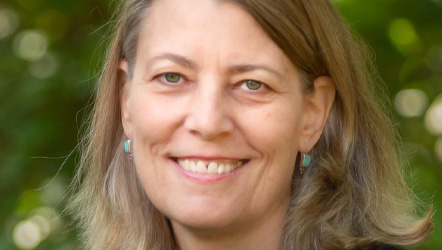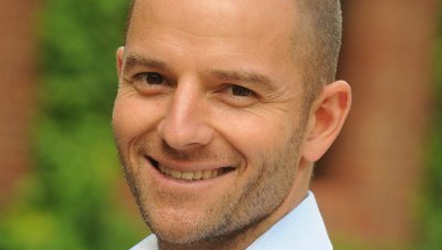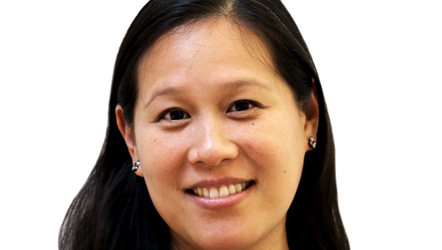SoL: Emotions & Engagement
SoL: Emotions & Engagement
Learning requires engagement, which is often elusive. In this program, educators will learn what research reveals about the most effective ways for teachers to encourage student motivation and engagement in the classroom.
In addition, educators will learn how to foster the positive emotions and behaviors that increase student engagement, effort, and learning outcomes and gain insight into the interdependencies between cognition, emotion, and behaviors in order to better understand a student’s root causes.
The role of negative and positive emotions in learning will also be explored in this course. Educators will discover tools to help minimize the emotions that hinder learning and maximize those that enable successful learning.
Program Modules
This program consists of ~15 hours of self-led asynchronous e-learning, which are complemented with live synchronous office hours to support learners. Learners maintain a flexible pace for their cohort to be in sync with each other to promote meaningful peer discussion and collaboration and to benefit from scheduled office hours and webinars.
10. Teach for Belonging I (Emotions & Relationships)
Learn how to foster positive emotions and behaviors that increase student engagement, effort and learning outcomes. Develop a better understanding of the interdependencies between cognition, emotion and behaviors to better support your students.
11. Teach for Belonging II (Engagement & Motivation)
Student engagement often decreases with every year of schooling. Yet, student learning requires their engagement and motivation. Learn what research reveals about the most effective ways for teachers to foster student motivation and engagement in the classroom.
Professional Development On The Science Of Learning Delivered By Top Learning Scientists Online To Educators Anywhere In The World
Guest Lecturers
Global experts on human learning provide the scientific base of our content, while program facilitators and subject matter experts translate the science and guide application to your classroom.

Steve Joordens
Professor of Psychology, University of Toronto, Scarborough, Department of Psychology
Relevant Affiliations:
Advanced Learning Technology Lab
Areas of Expertise:
Consciousness, Memory, & Attention
Education:
PhD in Psychology, University of Waterloo

Melanie Hayes
Founder of Big Minds Unschool, serving Twice Exceptional (2e) students.
Areas of Expertise:
Twenty years of experience teaching, mentoring, coaching, and advocating for 2e children.
Education:
Ed.D. in Educational Leadership, focus on giftedness and twice exceptionality

David Bott
Leads teacher training in designing, implementing and sustaining individual and whole-school approaches to wellbeing.
Areas of Expertise:
Associate Director of the Institute of Positive Education at Geelong Grammar School, Australia.
Education:
MA, Psychology & Education, University of Melbourne; BA Psychology, Monash University

Ned Johnson
Author & Educator
Relevant Affiliation:
Founder of PrepMatters and Author of A Sense of Control
Areas of Expertise:
Adolescence & Academic Performance
Education:
BA Economics & Political Science, Williams College
Asynchronous Program Elements
Priming Activities
Priming quizzes and open-ended interrogatories are used to get learners thinking about the subject matter they are about to learn.
Micro-Video Lessons
Introductory video lessons are delivered by program facilitators while topics within each module are delivered by subject matter experts.
Classroom Application Guides
Takeaways Guides to ensure the effective implementation of the concepts covered in the program.
Professional Learning Community
During the program, participants will have the opportunity to collaborate, reflect and discuss how to apply concepts taught.
Peer-Based Feedback
Experience breakout groups to receive and provide peers anonymized feedback for deeper learning.
SoL Practitioner’s Platform
Program alumni join an online platform to obtain and share resources and guidance for ongoing application of concepts taught.
Synchronous Program Elements
Small Group Collaboration
As part of fostering application, participants form groups around a topic or a principle and work in teams to develop original application ideas.
Office Hours
Office Hours are held to allow participants to ask questions and learn from each other as well as the program facilitators.
Webinars
Live webinars are hosted by program facilitators and/or guest lecturers.
Learning Outcomes
Educators will be able to: • Summarize the most effective ways to foster student motivation and engagement in their classroom. • Design an instructional activity to promote student engagement based on their conclusions. • Identify ways to foster positive emotions and behaviors in the classroom to increase your students’ engagement and learning outcomes. • Analyze the adverse effects of emotions and misbehaviors on cognition and learning.
Program Facilitators

Carmen Constantinescu
PhD Special Education Policy, University of Maryland; Universal Design for Learning. Instructional Design & Teacher Training
Areas of Expertise:
Cognitive development, teacher training, instructional accommodations and best teaching practices for students with disabilities.

Peling Li
COGx Curriculum Designer & Guest Lecturer
Areas of Expertise:
Teacher training and development, and special education. Experienced educator and coach to teachers; professor of graduate courses at Urban Teachers, Johns Hopkins University.
Education:
Ed.D. Special Education, Johns Hopkins University; MA International Education Development, Columbia University
We Practice What We Teach: Professional Development Designed Around the Science of Learning
Our Professional Development (PD) on the Science of Learning democratizes access to decades of research on human learning. It also incorporates the scientific principles of human learning to how deliver the program. Learning through our PD is active, engaging, collaborative, and application-based. Our program will invigorate your lesson planning with science-based tools that will enable your students to master what you teach.
